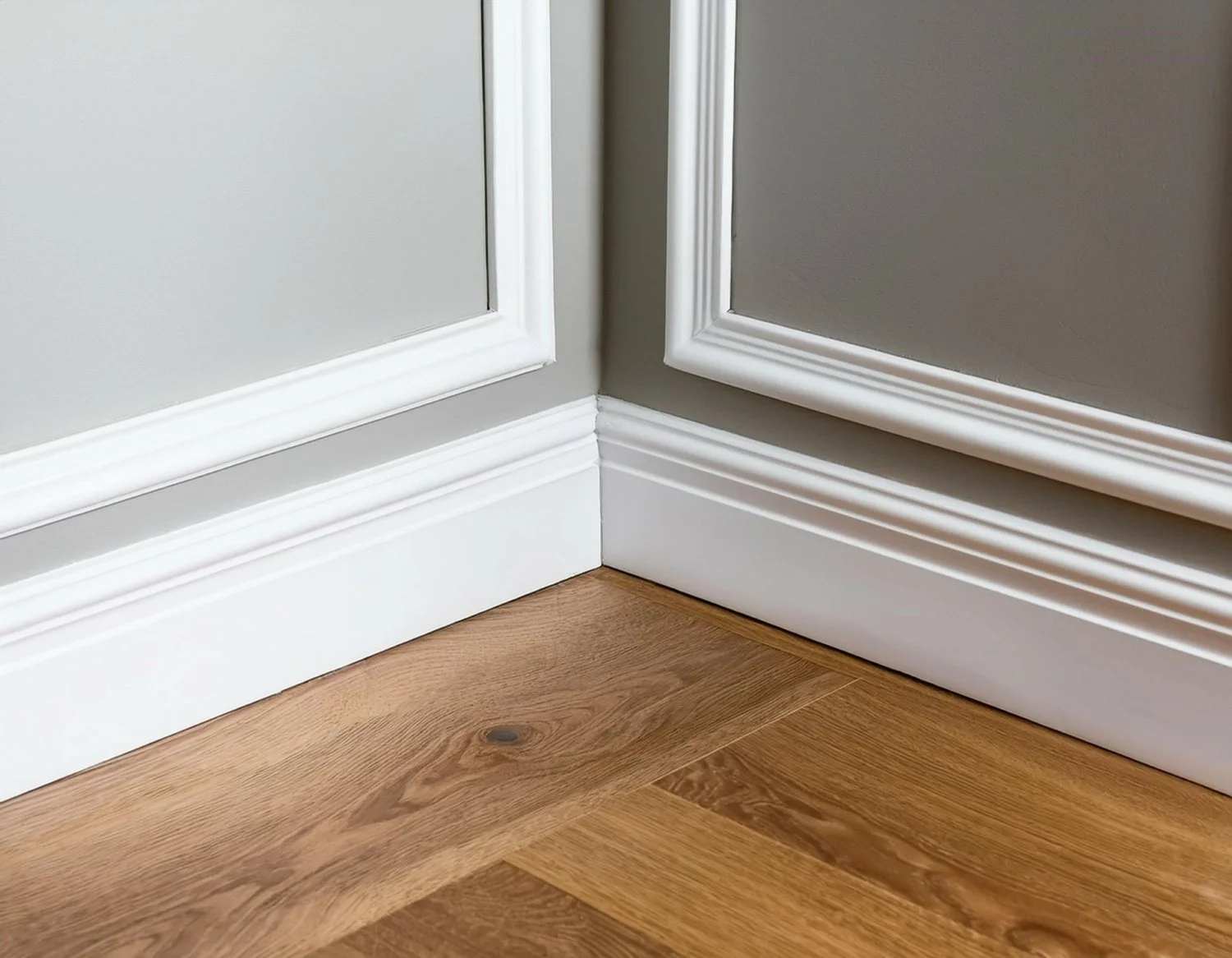When my husband and I bought our first period house built in 1912 in Luxembourg, we imagined lovingly restoring each faded detail to its former glory. What we didn't imagine, couldn't imagine, was just how quickly our renovation journey would transform from charming vision to harsh legal awakening.
We both come from legal backgrounds, so we felt confident navigating agreements with builders and handymen. Yet Luxembourg has its own unique twists that neither of us had anticipated. Our initial naivety, paired with assumptions drawn from other European systems, cost us dearly, not just financially but emotionally.
Renovating here isn’t just a question of aesthetics or craftsmanship. It’s about understanding a legal system that's surprisingly rigid, where contracts don’t dissolve just because promises break or deadlines pass. Understanding these rules beforehand won’t only protect your investment, it’ll safeguard your peace of mind.
1. The Critical Legal Difference in Luxembourg
Luxembourg’s legal system, deeply rooted in French civil law traditions, contrasts significantly with German or British common law systems. Historically influenced by the Napoleonic Code, Luxembourg’s legal approach emphasizes formal judicial intervention to resolve disputes, reflecting an inherent preference for structured, court-managed processes.
In countries like Germany or the UK, if a builder or handyman breaches an agreement - failing to deliver work as promised or within agreed deadlines - you can typically terminate the contract after giving proper notice, thereby limiting your financial exposure and swiftly moving forward.
However, in Luxembourg, contractual obligations can only be formally dissolved by judicial decision. This stringent legal requirement remains firmly in place even if both parties mutually agree that the relationship should end. Without intervention from a Luxembourgish court, contracts remain legally binding, regardless of the clarity or severity of the breach.
This uniquely rigid legal system was shaped historically to provide predictability and protect contractual stability, yet it often becomes burdensome and restrictive in practice - particularly in dynamic sectors such as building and renovation. This distinctive feature can significantly complicate renovation projects, trapping homeowners in situations that quickly escalate into costly and stressful legal entanglements.
2. Practical Implications
The reality of Luxembourg’s unique legal stance becomes starkly clear when your renovation hits a roadblock. Imagine this: the contractor stops showing up regularly, workmanship deteriorates, or perhaps they outright refuse to continue unless you agree to pay additional, uncontracted costs. Instinctively, you might want to terminate the agreement, cut your losses, and find a reliable replacement. In many jurisdictions, this would be straightforward. But in Luxembourg, you’re legally stuck.
Without a judge's formal decision, you cannot end your contract - no matter how clear-cut the breach seems. Even if both parties agree amicably to separate, the legal bond remains intact until a judicial decree officially dissolves it. This legal requirement can significantly delay your renovation plans, cause severe financial strain, and induce significant emotional stress.
Furthermore, the potential legal route to dissolve the contract is itself burdensome. Luxembourgish courts are known for lengthy proceedings. Legal action can stretch into months or even years, incurring substantial legal fees and court costs along the way. For most homeowners, particularly for renovation projects that don't involve enormous sums, the financial and emotional toll often outweighs the benefit of pursuing justice through the courts.
Beyond the direct implications, homeowners frequently find themselves making difficult decisions - like accepting substandard work or paying for services not adequately delivered - to avoid these daunting legal entanglements. The broader implications can mean substantial financial losses, compromised quality, and severe disruptions to personal peace and family life.
In essence, the practical implications of Luxembourg’s unique contractual rigidity can be profound, transforming your renovation dreams into costly nightmares if you aren’t adequately prepared and informed.
3. Getting Unstuck: What Are Your Realistic Options?
Now you're stuck - you're unhappy, work has stalled, and the relationship with your contractor feels toxic. What's next? Let's break it down into realistic, actionable routes:
Option A: The Legal Route
Yes, you can take your contractor to court. But let's be brutally honest: Luxembourg's judicial processes are lengthy, expensive, and emotionally draining. For smaller to medium-sized renovation projects, legal battles can quickly outstrip the original dispute’s value. Many Luxembourgish lawyers will candidly advise you against pursuing any legal action unless your disputed amount exceeds roughly €100,000. Below that threshold, the cost, stress, and lost time typically aren’t justified.
Option B: Hiring an Expert Intermediary
An alternative recommended by local lawyers is to appoint an official Luxembourg-based expert ("Expert judiciaire") as an intermediary between you and your contractor. This expert assesses the work, mediates disputes, and their decisions often carry considerable weight.
But here's the catch: this only works if your contractor or handyman is Luxembourg-based and thus has a reputation at stake. Luxembourg is a small country - reputation matters, and local professionals generally want to avoid damaging it. If your contractor comes from abroad (France, Belgium, Germany), this strategy often loses effectiveness. Additionally, expert interventions are themselves costly - easily running into thousands of euros - so again, it may not be worth it if your project is on the smaller side (€25,000 to €30,000 or below).
Option C: The Pragmatic Route
Let me save you months of stress and frustration. If legal battles or expensive experts aren't financially reasonable for you, guess what, they aren't for your contractor either. They might threaten you with collection actions or legal procedures, but realistically, they're facing the same cost-benefit analysis as you.
Here's the strategy:
• Stop paying if work hasn't been performed as contractually agreed. Clearly document (in writing!) the reasons why you dispute ("die Forderung bestreiten"). Keep everything factual, unemotional, and professional.
• Hire someone else or finish the job yourself. Move forward pragmatically and decisively. Most contractors will ultimately abandon aggressive recovery efforts because, just like you, they don't find the hassle and expense worthwhile.
• Review, report, and share your experiences online. Luxembourg is small, reputations matter, and publicly available feedback is influential.
A side note: even if you have legal insurance ("Rechtsschutzversicherung") here in Luxembourg, you'll likely find these renovation disputes specifically excluded - another frustrating revelation many homeowners discover too late.
Don’t let the Luxembourgish system intimidate you. Remember: its complexities cut both ways, and with the right pragmatic approach, you're far from powerless.
4. Conclusion
When we first encountered these legal hurdles, we both felt overwhelmed, caught in a maze of rigid procedures that seemed almost designed to trap us. Yet, with each challenge, we discovered something crucial: knowing your rights and options isn't just about protection; it's about reclaiming your sense of agency.
Renovation is a deeply personal journey. It’s about creating something lasting, and ultimately, about preserving your peace of mind. Yes, Luxembourg’s legal landscape is tricky, but you’re not powerless. The rules that might initially seem restrictive can also shield you if you understand how to navigate them pragmatically. Armed with knowledge, clarity, and decisiveness, you can turn legal frustrations into empowering lessons.
In my next blog post, I will explore strategies for avoiding legal problems entirely, how to choose the right builders and position yourself strongly from day one. Because ultimately, your renovation journey should be defined by inspiration and creativity, not by legal entanglements.
Disclaimer:
This blog post reflects personal experiences and insights intended to inform and empower readers. It does not constitute legal advice, nor does it replace professional legal consultation. While every effort is made to ensure accuracy, the author assumes no liability for any decisions made based on this content. For personalized legal advice regarding your specific situation, please consult a qualified legal professional in Luxembourg.




































































